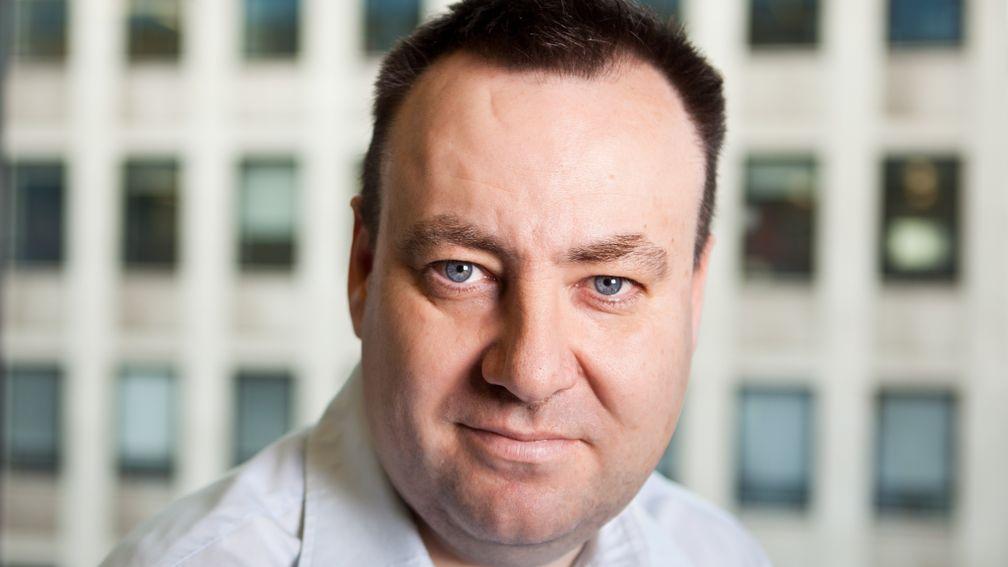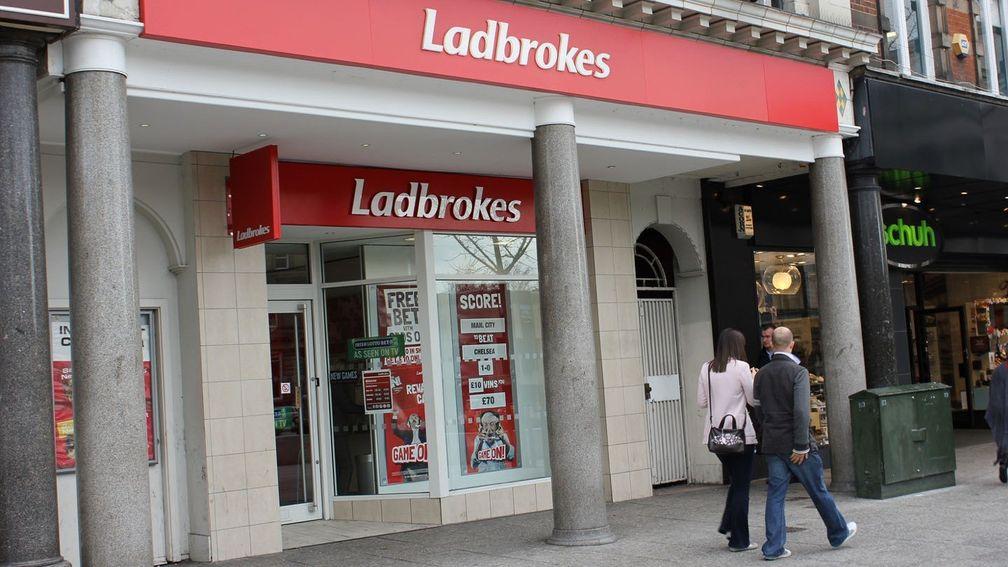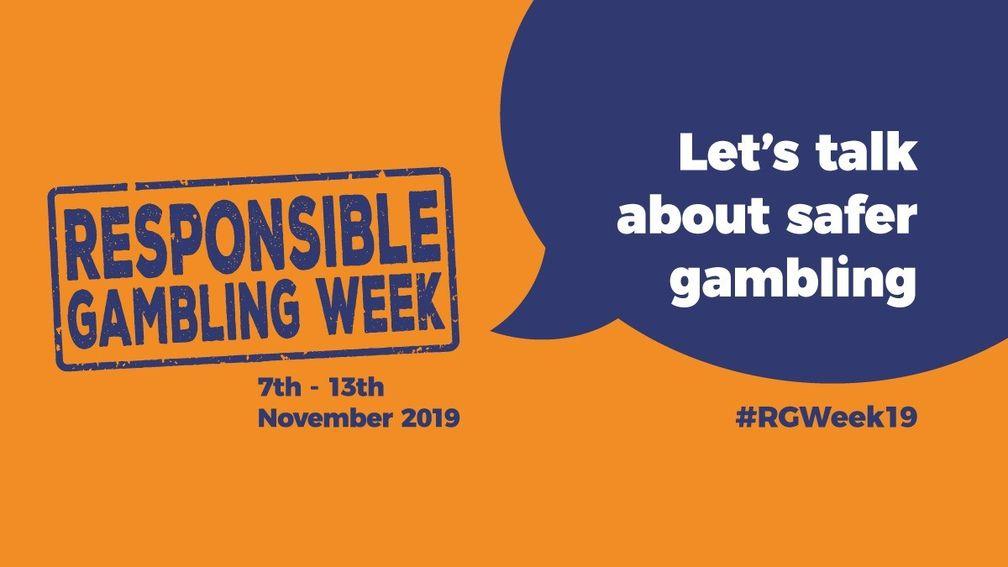'I am not a coward - I'll meet them any place, anywhere, any time'
The GVC Holdings boss discusses problem gambling and much more with Bill Barber

The issue of responsible gambling is the "single biggest challenge" but also "the single biggest opportunity" facing the betting industry according to one of its most high-profile leaders, Kenny Alexander.
Alexander is chief executive of GVC Holdings, parent company of Ladbrokes and Coral among other popular gambling brands across the world, and has been at the forefront of trying to re-establish the sector's reputation, which has taken a pummelling in recent years.
He acknowledges the mistakes that have been made in the past but believes the industry has been doing good work to help those suffering harm from gambling and needs to be more robust in defending itself.
Alexander also addresses the accusations of cowardice he received from MPs this week for not facing them in parliament in September.
At the start of Responsible Gambling Week, Alexander is in no doubt about the importance of the issue to the sector.
"I think it's probably the most important thing the industry is facing at the moment," he says at the company's London offices in the shadow of St Paul's Cathedral.
"Problem gamblers are not good for this industry for a whole host of reasons and if we are not seen as being responsible then the business is not going to be sustainable. That is a fact.
"I think it is at the core of what GVC does, it's probably the number one strategic objective to get this right and I think it's probably the same in other gambling companies. I don't think we are any different from Hills, or Flutter or 365. It's the single biggest challenge but it's also the single biggest opportunity.
“I think we are getting it right despite all the headlines – I think we are doing a lot of good stuff. But the bottom line is the industry is under enormous scrutiny and it is only going to get worse if we don’t absolutely nail it.”
Alexander, 50, has been chief executive of GVC since 2007 when it was a little-known minnow, having started out with online betting pioneer Sportingbet.
He has subsequently built GVC into one of the giants of the industry through a series of acquisitions, including his old employer Sportingbet, bwin.party and, most spectacularly, Ladbrokes Coral in March last year.

Since then GVC has been one of the driving forces in the wider industry's efforts to counter the fierce criticism it has received from campaigners, the media and politicians over problem gambling, as well as producing its own initiatives.
The company helped push the ban on pre-watershed television gambling adverts around live sports and this year, along with bet365, Sky Bet, William Hill and Paddy Power Betfair's owners Flutter Entertainment, agreed to increase their voluntary contributions to treatment and research of problem gambling from 0.1 per cent of their gross profits to one per cent over the next five years.
In January GVC announced its own Changing for the Bettor campaign, headed by a major research project with the Harvard Medical School's Division on Addiction. It then donated many of its football sponsorships to the charity GambleAware.
"I think we have led the charge in some of these things but they are in collaboration with the rest of the industry," Alexander says. "We've invested a lot of money into the Harvard research programme, we've invested in education and also a lot of this stuff is being done in the engine room of the business – finding markers of harm.
"The way we can recognise these things is a lot more sophisticated than we have ever been able to do before, although I would have to say I suspect that all the other big operators are as sophisticated as us.
"The fact is the industry has made massive strides in the last 18 months to two years around problem gambling. The problem is the headlines still remain bad and I find that a big frustration, the report this week for example."
The report Alexander refers to was published by the Gambling Related Harm All-Party Parliamentary Group and its recommendations, which included reducing the maximum stake for online slot games, wiped tens of millions of pounds from gambling stocks, including GVC.
It also contained personal criticism of Alexander, who had not attended a hearing held by the group in September and did not send a representative in his place.
The report specifically named Alexander and said the APPG was "appalled" at his "cowardly behaviour".
"I'll just tackle that head on," Alexander says. "They called me a coward. I can tell you right now, I am not a coward, anybody who knows me will tell you I am not a coward. I didn't go to that event because I had a board meeting in the Isle of Man and there is no way I could get out of it.
"I thought it was going to be a bearpit, which I am fine with. I am quite happy to go in there and take the punches and I will take them. I am the CEO of the company and I will take them. I am not sending in some of my lieutenants to take them.
"If they want to speak to me I will meet them any place, anywhere, any time."
Such a meeting might be a lively affair given Alexander's trenchant views on both the APPG and its interim report's findings.
"The main players, the politicians, are basically anti-gambling," he says. "They've never said a positive word about the gambling industry full stop.
"There were a whole raft of suggestions but the one that got the publicity was the £2. That, I have to say, is absolute nonsense. To compare the situation around the FOBTs to online slots is apples and pears.
"The ways you can protect players on FOBTs in the retail estate are limited. Online we know everything you are doing, we've got all your history, we can monitor you, we can protect you, we've got controls on our sites that can limit your play, limit your deposits, limit anything you want."
Alexander also believes the APPG's recommendations will drive customers to the black market.
He says: "I don't think there is an epidemic of problem gaming and if you look at the stats they are pretty stable over the last five or six years. In fact, I would suggest they are actually coming down.
"But I will tell you what, if they put that in place then they will have a problem with problem gaming. They will create problem gamblers because they will be playing with black market offshore operators."

He says the industry needs to defend and promote itself more strongly.
"As an industry we have to be a lot more robust because it is a great industry," he says. "I bet every day, I have already had my bets on tonight's football, I have been betting since I was 18 – to be honest I was betting before that. I go to racetracks, I go to dog tracks, I go to poker rooms, I mix with gamblers and I don't have a problem with it.
"It's fun, it's part of my life. For the vast, vast majority of people it's fine. It's not ruining their lives, it's enhancing their lives. We do have to recognise that small minority. That very tiny minority are the people we do need to recognise and look after and that is what we are doing.
"We've made massive strides, there is much more we can do, there is much more we will do, but let's keep it in context. Let's not let the industry be bullied around by people who are using it for their own agendas."
How did the industry let itself get into this position?
Alexander points the finger firmly at FOBTs, the hugely controversial gaming machines found in betting shops which the government clamped down on this year when reducing the maximum stake to £2 from £100.
They were a subject GVC had not had any direct involvement in until 12 months before the stake reduction was introduced, when they bought Ladbrokes and Coral.
"We were on the sidelines watching this pantomime develop," Alexander says. "There is no doubt something had to be done. The industry should have realised something had to be done about these machines, something had to be done to reduce the limits.
"Proper, sensible limits should have been put in place and then we move on. That's what should have happened. By not doing that people lost their jobs, tax revenues were reduced, betting shops have been shut and the racing industry is scrambling around."

The bad publicity the industry received during the episode has now tarnished the whole sector, Alexander believes.
"That is the backdrop of where we are now, where people think that gambling is very damaging and it has just continued to get momentum.
"We are where we are. We can't go back in time and reverse what happened with the FOBTs, but what we have to do is be a lot more proactive and a lot more serious about tackling this issue."
There has been a silver lining, Alexander says.
"I think the betting shop environment is more pleasant now," he affirms. "There are a lot fewer incidents about FOBTs.
"Because the environment is a lot better we are seeing that in our numbers. People are encouraged to stay in shops longer because it's a healthier atmosphere."
Alexander says the importance of safer gambling is being felt at board level, something that would not have registered when he joined GVC in 2007.
It is "what we talk about the most, quite frankly", he says.
Some ethical funds which will not invest in areas such as tobacco, alcohol and fossil fuels are also avoiding gambling.
"Therefore in order to be successful it's not just focusing on making as much money as you possibly can," Alexander says. "To get investors, keep investors and encourage investors you have to be seen as responsible."
However, the focus has to include the staff throughout GVC's business.
Alexander says: "A lot of our staff are interacting with customers in the UK retail estate and also in customer service or designing new products.
"In terms of the organisation, particularly in retail, we put a lot of effort into training around this area.
"I don't think staff get enough credit because they really are at the coalface and they have to step in sometimes when people are getting out of control with their gambling.
"They are all trained to do it and they do a very good job."
Looking ahead, Alexander believes further limits on advertising and sponsorship around sport need to be introduced.
"You can say let's stop the adverts around the football because there are kids watching, which I think is the biggest danger really – kids watching repeated Ladbrokes, Coral, Hills, Ray Winstone ads, that needed to come to an end.
"But if you end that and then they switch on the game and it's on the shirt and round the perimeter you are not really tackling it. I think it does need to be seriously reduced."
Alexander believes the two most important areas the industry needs to focus on are education and increasing the sophistication of recognising problematic behaviour.
"If you look at the attitude of young people to alcohol now, it is probably comparing night and day to my attitude towards alcohol when I was 18 or 19 and that's because of education," he says.
"When I was at school you didn't get education about gambling and I think there should be, and we are investing in it.
"That is a big area. It will take time to play through but I think that is an area that is definitely worth investing in."
Technology will play its part in recognising the markers of harm.
Alexander adds: "That's continually evolving and improving and as it gets more sophisticated the number of problem gamblers should reduce."
However, Alexander recognises this is not a battle GVC can fight on its own.
"If GVC go off and do our own stuff and the rest don't follow then the whole industry gets clobbered as a result," he says. "It has to be done in a collaborative fashion.
"We are not going to agree on everything but I think all the big operators do recognise we have a battle ahead and we are not going to succeed by all going off in different directions.
"I think the new Betting and Gaming Council will help to bring it all together."
He adds: "Responsible gambling is the number one strategic objective within the GVC group and I can't imagine it's any different at Hills and Flutter.
"As a result, it's absolutely crucial. There's no bigger challenge that the industry faces.
"We need to get the message across that we are responsible, we are on a path to protecting our players as much as we possibly can, and that it is a great opportunity."
'The penny really dropped for me'
Kenny Alexander says a visit last year to see those affected by problem gambling at a centre run by the charity the Gordon Moody Association was when "the penny really dropped for me" about problem gambling.
"You can see stats, read about stuff and talk to certain people, but it's not until you go and see the people who are seriously damaged that it hits home," he says.
"They'd had lives, wives, girlfriends, families, they'd had houses and they had lost the lot. Though I say don't exaggerate the problem, the fact is it can be destructive, there's no doubt about it.
"Some of them were quite young. They were in their twenties, they had debts, one or two of them had got into crime. It hammers it home when you speak to the people who are trying to treat them, or when you speak to the victims yourself."
If you are concerned about your gambling and are worried you may have a problem, click here to find advice on how you can receive help
Published on 7 November 2019inBusiness
Last updated 14:49, 8 November 2019
- Ladbrokes owner Entain reports fall in online revenues as regulatory challenges continue to bite
- Watchdog warns Spreadex-Sporting Index merger raises competition concerns following investigation
- Entain chairman Barry Gibson to step down in September as search for new chief executive continues
- Analysis: Flutter and 888 have enjoyed contrasting fortunes but they still have things in common
- US arm FanDuel drives 'best in class' Flutter Entertainment forward, with more growth forecast for 2024
- Ladbrokes owner Entain reports fall in online revenues as regulatory challenges continue to bite
- Watchdog warns Spreadex-Sporting Index merger raises competition concerns following investigation
- Entain chairman Barry Gibson to step down in September as search for new chief executive continues
- Analysis: Flutter and 888 have enjoyed contrasting fortunes but they still have things in common
- US arm FanDuel drives 'best in class' Flutter Entertainment forward, with more growth forecast for 2024